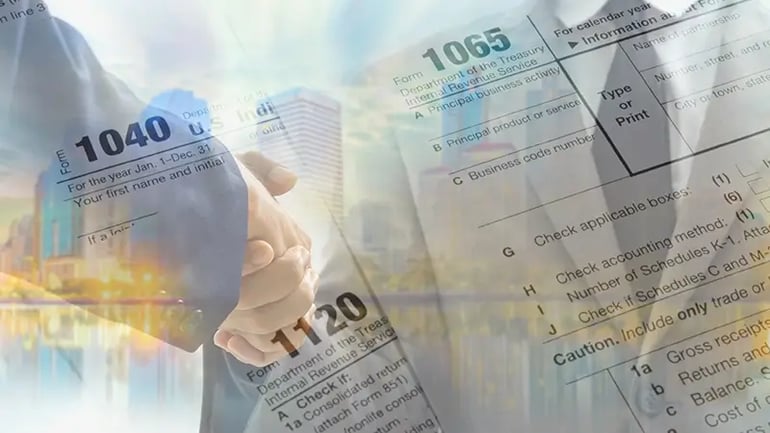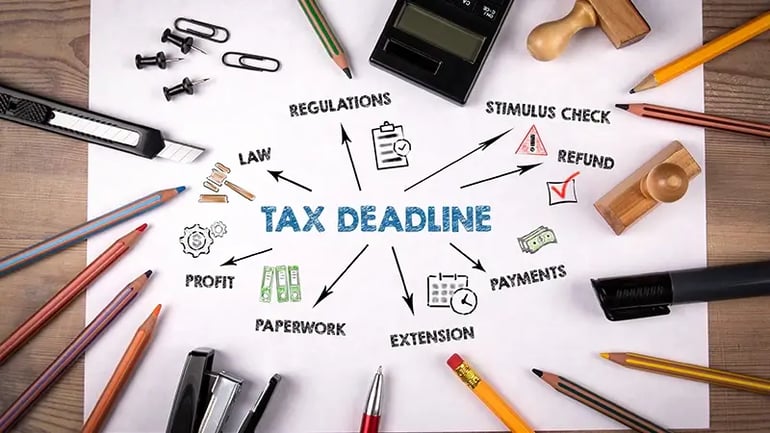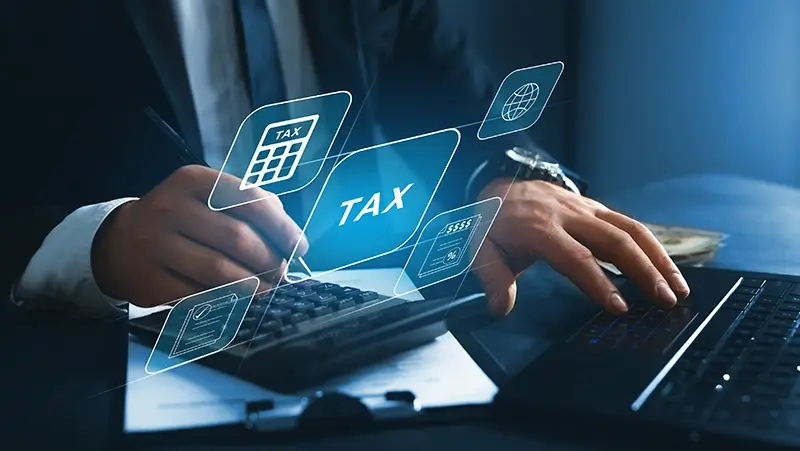United States Turkey Tax Treaty
The United States-Turkey Income Tax Treaty is a cornerstone for fostering economic collaboration and providing clarity in cross-border taxation....
For entrepreneurs, grasping and adeptly handling business taxes is vital. This detailed guide delves into the complexities of tax preparation, equipping you with the insights and resources needed to adeptly traverse the realm of taxes.
|
Mandatory stops |
The tax obligations of businesses depend on their structure and earnings. Typically, businesses must handle federal and state taxes and detail their finances on distinct business tax filings. Sole proprietors include their business finances in their individual tax returns. Partnerships and LLCs submit informational returns and allocate profits and losses among members. Corporations face corporate income tax.
Income taxes are imposed on the earnings of individuals, businesses, and other organizations. Governments collect these taxes to fund public services and initiatives. Businesses, whether they're corporations, partnerships, or sole proprietorships, pay income taxes on their profits. How a business is taxed depends on its legal structure, industry, and location. Owners may pay taxes on business income personally or through the business, depending on the business type. For the federal government, income tax is a primary revenue source.
Income tax compliance is the process by which businesses adhere to and fulfill all tax obligations mandated by the relevant tax authorities. This includes the precise reporting and remittance of taxes, such as income tax, to comply with the laws and regulations in place. It involves keeping detailed records, accurately determining taxable income, taking advantage of eligible deductions and credits, and filing business taxes properly. Through strict compliance with tax requirements, businesses can evade penalties, remain in good standing with tax agencies, and support the stability and integrity of the tax system.
Here are some essential steps in preparing business income tax:

Preparing your company's income tax starts with collecting all the essential tax info. You'll need to round up and sort out every financial record and document that details your business's earnings and expenditures. The main items to have on hand are your financial statements—think profit and loss statements and balance sheets—plus all the backup stuff like invoices, receipts, and bank statements. Don't forget to include details about employee salaries, perks, and taxes withheld, and any tax forms you've got from clients or customers, like 1099s.
When preparing your current business tax return, it's useful to have the previous year's return for several reasons. The prior year's return can act as a guide to ensure consistent reporting. It allows you to review the previously provided information and compare it with the current year's figures, helping to spot any discrepancies, changes, or necessary updates. Moreover, some items on your tax return might need information carried over from the last year. Reviewing your prior year's return in conjunction with your current financials can provide insights into your business's performance and reveal any trends or patterns.
Comprehending the structure of your business is vital for corporate tax preparation. The chosen structure influences tax duties, reporting necessities, and liability. Each type of business structure carries distinct legal and tax consequences. Consulting with tax experts, lawyers, and business tax advisors is advisable to gain an understanding of the implications associated with each structure. These professionals can elucidate the advantages and disadvantages of each choice, aiding in an educated decision-making process.
Selecting the right accounting method is crucial for your business since it impacts the way you record and report income and expenses for taxation. The two main methods are cash accounting and accrual accounting. Let's see below:
Cash Accounting: This method is simple and widely adopted by small businesses. It offers a transparent view of cash flow, concentrating on tangible cash movements. Cash accounting is beneficial for businesses that primarily deal with cash transactions and have little to no inventory or accounts receivable.
Accrual Accounting: Accrual accounting records revenues and expenses when they are incurred, irrespective of the actual cash flow. This approach offers a clearer picture of a company's financial health and commitments. It is particularly beneficial for businesses that manage inventory, have significant accounts receivable, or engage in intricate financial activities.
Reviewing tax deadlines and requirements is essential to ensure compliance with the tax laws and avoid penalties or interest charges. The deadline for filing your business's annual income tax return depends on your business entity structure. For most sole proprietorships and partnerships, the deadline is typically April 15th. However, C corporations and S corporations have different deadlines.
Estimated tax payments are advance payments made by businesses on their projected income tax during the fiscal year. These payments are necessary when the tax withheld from salaries or other income sources doesn't cover the anticipated tax debt. Businesses usually pay these taxes in four installments throughout the year, with deadlines set by tax agencies. Through estimated payments, businesses can prevent fines and interest for late payments and stay up-to-date with their tax responsibilities. This method also helps businesses manage their finances better and adhere to tax regulations.
The preparation of financial statements is a crucial component of corporate tax preparation. These documents offer a transparent and precise representation of a company's financial status and performance, vital for tax reporting. The income statement details the company's revenues, expenses, and net profit or loss for a certain period, aiding in the calculation of taxable income and offering a glimpse into the company's financial well-being. The balance sheet provides an overview of the company's assets, liabilities, and equity at a particular moment. Ensuring accuracy, uniformity, and compliance with relevant tax regulations is essential when preparing these statements for tax purposes.

Completing tax forms is a vital part of the corporate tax preparation process. It requires the precise completion of necessary tax documents to report a business's income, expenses, deductions, and other pertinent details to the tax authorities.
Determine the Appropriate Forms: The forms you need to complete depend on your business structure. For example, sole proprietorships generally report income and expenses on Schedule C, while partnerships file Form 1065. Corporations have different forms, such as Form 1120 for C corporations and Form 1120S for S corporations.
Follow Instructions Carefully: Each tax form comes with detailed instructions provided by the tax authorities. Read these instructions carefully to understand how to properly complete the forms, report specific items, and calculate relevant figures.
Use Software or Professional Help: Consider using tax preparation software or seeking assistance from a professional tax preparer or accountant to prepare your business tax return. These resources can help simplify the process, ensure accuracy, and navigate any complex tax provisions or changes in the tax laws.

To calculate your business's taxable income, you need to ascertain the income amount that is liable for tax after deducting allowable expenses and applying necessary adjustments. Here is a basic outline for computing your business taxable income:
Start with Gross Income: Begin by determining your gross income, which includes all revenue, sales, and receipts generated by your business during the tax year.
Deduct Cost of Goods Sold (if applicable): If your business involves selling products, you may need to calculate the cost of goods sold (COGS). This includes the direct costs associated with producing or acquiring the goods you sell. Subtract the COGS from your gross income to arrive at the gross profit.
Subtract Business Expenses: Identify and deduct all allowable business expenses from the gross profit. These expenses can include rent, utilities, wages, supplies, marketing costs, professional fees, insurance premiums, and other expenses necessary for operating your business. Ensure that these expenses are ordinary and necessary for your business and are supported by appropriate documentation.
Calculate Taxable Income: Subtract the total allowable deductions and adjustments from your gross income. The resulting figure is your business's taxable income.
In preparing business tax returns, it's vital to leverage tax deductions and credits to minimize tax liability. Deductions reduce your taxable income by allowing you to subtract eligible expenses. Tax credits, conversely, directly decrease the taxes you owe and are often linked to specific actions or investments, like research and development or energy efficiency upgrades. Utilizing these deductions and credits effectively can lead to significant tax savings, retaining more of your income.
Filing your business tax return is the concluding phase of the tax preparation cycle. Once you've filled out the tax forms, verified their correctness, and compiled all required supporting documentation, you should proceed to lodge your tax return with the relevant tax agencies. You have the option to e-file your business tax return electronically or submit a paper return via mail. Electronic filing is typically quicker, and safer, and facilitates faster processing and acknowledgment of your submission.
Maintaining accurate business records is crucial for efficient tax preparation. Organized and precise record-keeping enables you to monitor income, expenses, deductions, and other financial activities pertinent to your business. It facilitates the easy retrieval and submission of supporting documents during tax filing, minimizes the likelihood of mistakes, and ensures adherence to tax regulations. Effective record management also aids in assessing your business's financial status, making well-informed decisions, and addressing any audits or questions from tax officials.

Tax professionals are vital in managing business taxes, and offering expertise to individuals and companies. They use their understanding of tax laws to enhance financial results and maintain legal compliance. These experts give current advice on tax planning and benefits, aiming to reduce tax burdens and increase refunds. They keep up with tax law changes, spotting savings opportunities and keeping clients compliant. The investment in a tax professional's help is often outweighed by the resulting tax savings. In essence, a tax professional's assistance ensures peace of mind, efficiency, and the know-how to handle tax complexities.
Filing your business tax return successfully is essential for adhering to tax laws and optimizing your financial circumstances. Below are some tips to assist you in effectively navigating the tax preparation process:
Stay organized throughout the year: Keep detailed and accurate records of your business income, expenses, and receipts. Maintain a well-organized system that categorizes transactions and documentation, making it easier to compile the necessary information for your tax return.
Seek professional assistance when needed: Tax laws can be complex, and it's beneficial to consult with a qualified tax professional, such as a certified public accountant (CPA) or tax advisor. They can provide guidance on tax planning, ensure compliance with regulations, and help identify potential deductions or credits you may have missed.
Stay informed about tax law changes: Tax laws and regulations are subject to change, so it's essential to stay updated on any revisions that may impact your business. Regularly review IRS publications, and tax alerts, and consult reputable sources to ensure you are aware of any new requirements or opportunities for tax savings.
Understand your eligible deductions and credits: Familiarize yourself with the deductions and credits available to your business. This includes deductions for business-related expenses, such as rent, utilities, equipment, and employee benefits. Additionally, research potential credits, such as those related to research and development, energy efficiency, or hiring certain individuals.
Review and double-check your tax return: Before submitting your tax return, carefully review all the information provided. Check for accuracy, ensuring that figures, calculations, and supporting documentation are correct. Errors or omissions can lead to delays, penalties, or even audits, so take the time to verify the information.
File your tax return on time: Pay attention to the tax filing deadlines to avoid penalties or interest charges. If you require additional time, consider filing for an extension. However, remember that an extension to file does not grant an extension to pay any taxes owed, so estimate your liability and make payments accordingly.
Consider electronic filing: Filing your tax return electronically offers several advantages, including faster processing, reduced errors, and the ability to track the status of your return. Explore IRS-approved tax software options or consult with a tax professional to determine the best electronic filing method for your business.
Keep copies of your filed tax returns and supporting documents: Retain copies of your filed tax returns, along with all supporting documents, for at least three to seven years. This ensures you have access to the information in case of an audit or if you need to refer back to previous filings.
Separate personal and business finances: Maintain separate bank accounts and financial records for your business and personal finances. This clear distinction simplifies bookkeeping and ensures accurate reporting on your tax return.
Seek ongoing tax planning: Don't limit tax considerations to just the annual filing period. Engage in proactive tax planning throughout the year to identify opportunities for tax savings, implement strategies, and optimize your tax position.

Business tax deadlines, extensions, and past due dates can vary depending on the type of business entity and the tax year. Here's a general overview:
Original Filing Deadline: The original deadline for filing business tax returns depends on the business structure:
Sole Proprietorship (Schedule C): April 15th for calendar year taxpayers.
Partnership (Form 1065): March 15th for calendar year taxpayers.
S Corporation (Form 1120S): March 15th for calendar year taxpayers.
C Corporation (Form 1120): April 15th for calendar year taxpayers.
Extensions: If you need more time to file your business tax return, you can request an extension by submitting the appropriate form before the original deadline. The extension provides additional time to file the return, but not to pay any taxes owed. The extension deadlines are as follows:
Sole Proprietorship, Partnership, and S Corporation: September 15th.
C Corporation: October 15th.
Past Due Date: Not filing by the original or extended deadline can incur penalties and interest. These penalties are usually a percentage of the unpaid taxes. It's crucial to file promptly, even if full payment isn't possible, to reduce these charges.

When operating a sole proprietorship, you typically report your personal and business income together on your personal tax return; a separate corporate tax return isn't necessary. On Form 1040, you should declare your total personal income, which includes earnings from your sole proprietorship, encompassing business activities income like sales, fees, and other related revenues. As a sole proprietor, you're obliged to pay employment taxes for Social Security and Medicare. These taxes can be calculated using the designated forms or schedules from your tax authority. Your business income is reported on Schedule C of Form 1040, which details the profit or loss from your sole proprietorship.
At H&CO, we have a team of experienced tax professionals (CPAs) who can help you prepare your business income tax returns. Our tax experts can assist you in understanding the latest changes in tax laws and regulations, maximizing deductions and credits available to you, and correctly calculating your business taxable income and overall tax liability.
H&CO's bilingual and trusted CPA Tax Advisors have been helping business owners, family offices, real estate owners, investors, global families, and foreign individuals with their income tax preparation, for over 30 years. You can talk to our CPAs in one of our offices near you in Miami, Coral Gables, Aventura, or Fort Lauderdale. Our international CPAs are ready to assist you with all your income tax planning and income tax preparation needs.
If you are interested in learning about some of our other global tax services, take a look at our individual tax services or international tax services. We are ready for a successful engagement on this side of the world!
The five primary categories of business taxes are income tax, estimated tax, self-employment tax, employment taxes, and excise taxes.
An Employer Identification Number (EIN) is a distinctive nine-digit number that the Internal Revenue Service (IRS) assigns to business entities for tax identification purposes. It is widely utilized by employers, sole proprietors, corporations, partnerships, and various other entities.
Filing business taxes requires the collection of financial documents, such as records of income, expenses, and necessary tax forms like Form 1120 for corporations or Schedule C for sole proprietors. You may choose to file the taxes on your own using suitable tax software or hire a tax expert to assist you.
There are several deductions that businesses can claim on their tax returns, including expenses related to business travel, office supplies, employee wages, health insurance premiums, retirement contributions, and depreciation of assets. However, the specific deductions available depend on the nature of your business and the applicable tax laws.
The filing deadline for business tax returns differs based on the entity type and tax year. Generally, businesses on a calendar year schedule face a March 15th deadline for partnerships and S corporations, or an April 15th deadline for sole proprietors and C corporations. Nonetheless, it's crucial to consult the IRS or a tax expert for your business's exact filing deadline.
To amend a business tax return, you need to file an amended return using the appropriate form (such as Form 1120X for corporations or Form 1040X for individuals). In the amended return, you'll provide the correct information and explain the changes. It's crucial to ensure accurate and thorough documentation to support the changes made.
The necessity to file a separate tax return for your small business hinges on its legal structure. Sole proprietors usually include their business income and expenses on their individual tax returns using Form 1040. In contrast, partnerships, corporations, and some other entities are required to file separate tax returns using forms such as 1065 or 1120. It's advisable to seek guidance from a tax expert to ascertain the correct filing obligations for your particular business entity.
Neglecting to file a business tax return can result in a range of repercussions, including penalties, fines, and interest on the taxes due. Additionally, tax authorities may take legal action. Therefore, it is essential to meet your tax obligations to prevent these outcomes, as failing to comply with tax regulations can lead to serious financial and legal consequences.
Here is a list of the common tax forms your business may be required to file depending on the type of business you own:
1120, U.S. Corporation Income Tax Return (C corporations)
1120-S, U.S. Income Tax Return for an S Corporation
1065, U.S. Return of Partnership Income
1040, U.S. Individual Income Tax Return
Schedule C (Form 1040), Profit or Loss From Business
Schedule SE (Form 1040), Self-Employment Tax
1040-ES, Estimated Tax for Individuals
941, Employer's QUARTERLY Federal Tax Return
943, Employer's Annual Federal Tax Return for Agricultural Employees
944, Employer's ANNUAL Federal Tax Return
W-2, Wage and Tax Statement (to employee)
W-3, Transmittal of Wage and Tax Statements (to the Social Security Administration)
940, Employer's Annual Federal Unemployment (FUTA) Tax Return.

The United States-Turkey Income Tax Treaty is a cornerstone for fostering economic collaboration and providing clarity in cross-border taxation....

The United States-Switzerland Income Tax Treaty plays a vital role in encouraging and supporting business expansion and cross-border activities...

Tax season is often overwhelming for small business owners. Navigating intricate tax laws, evolving regulations, and the possibility of an audit...
